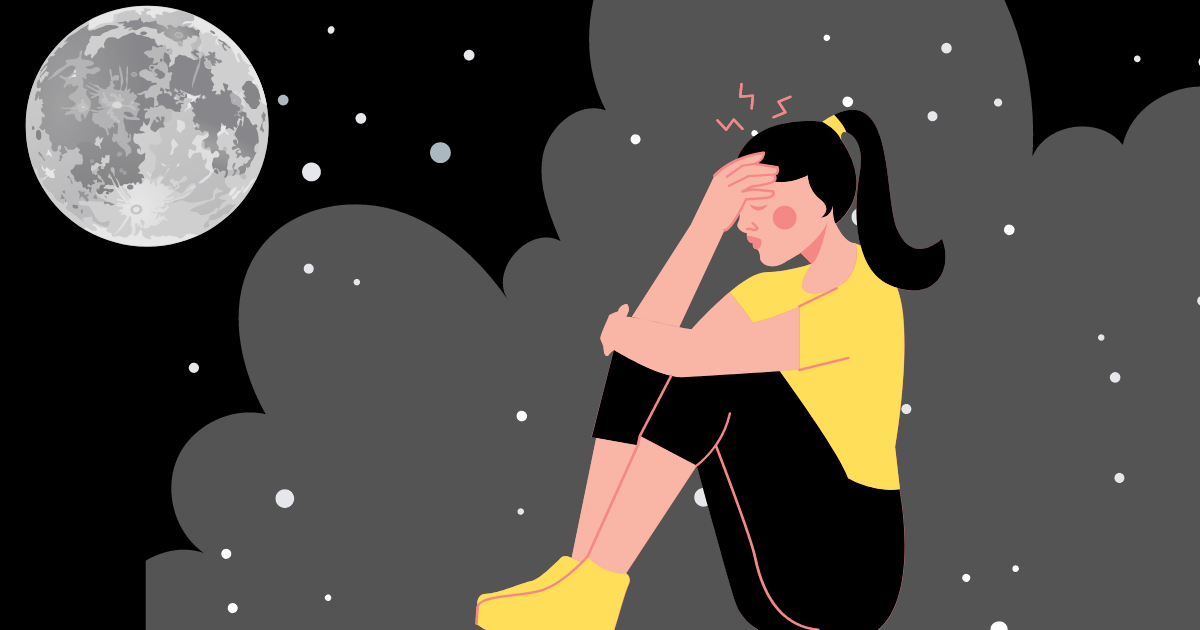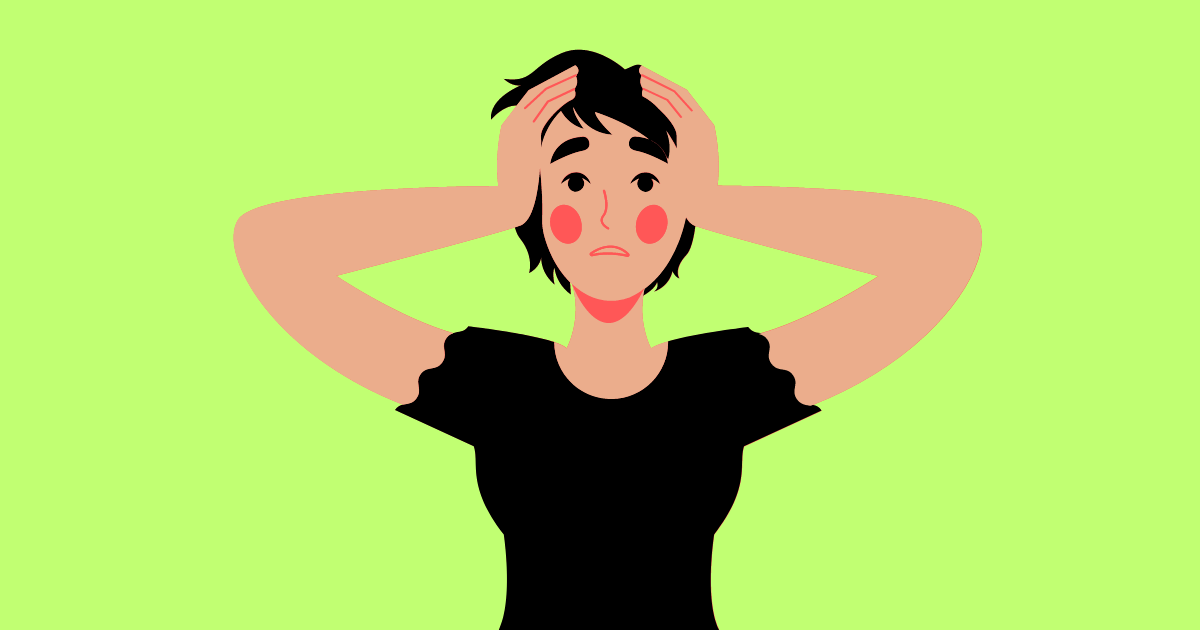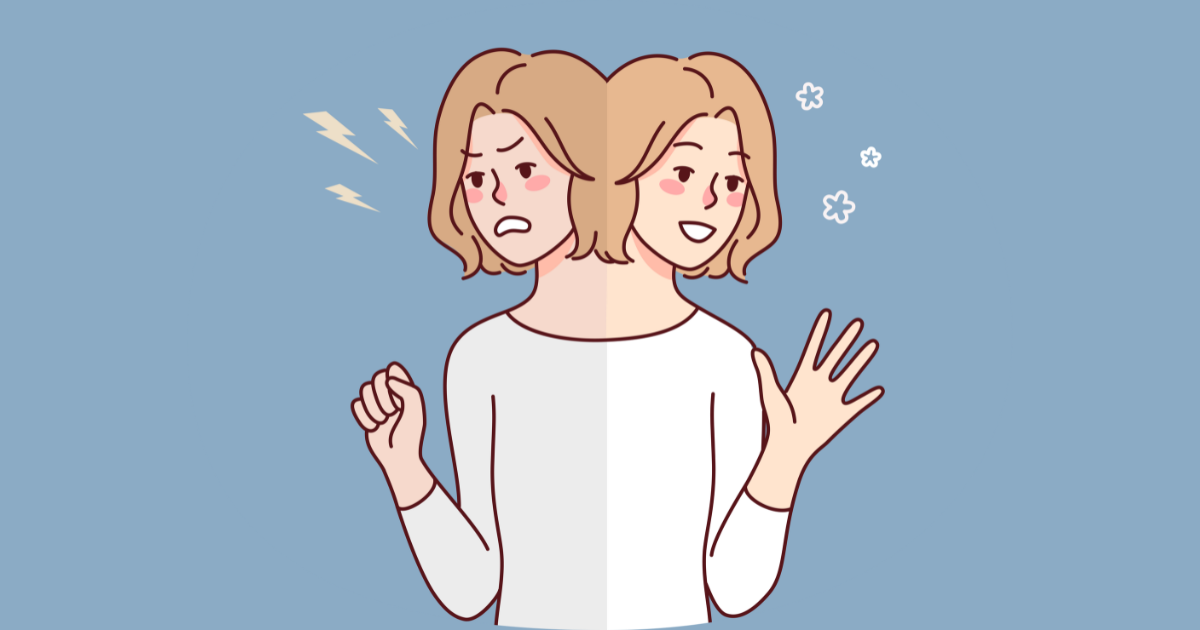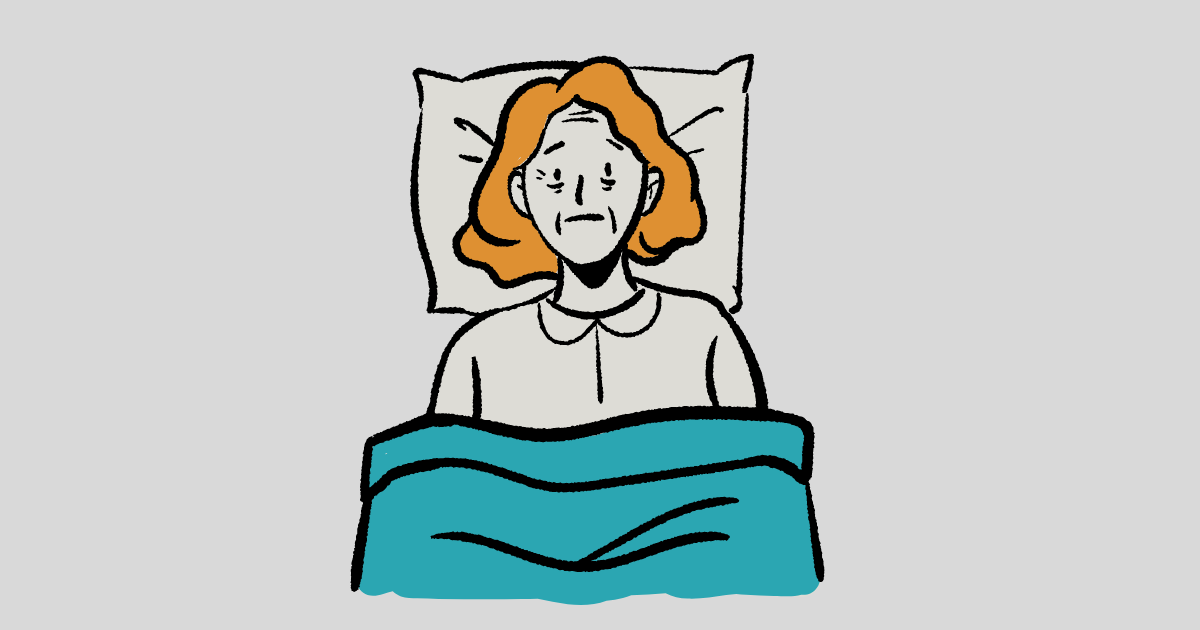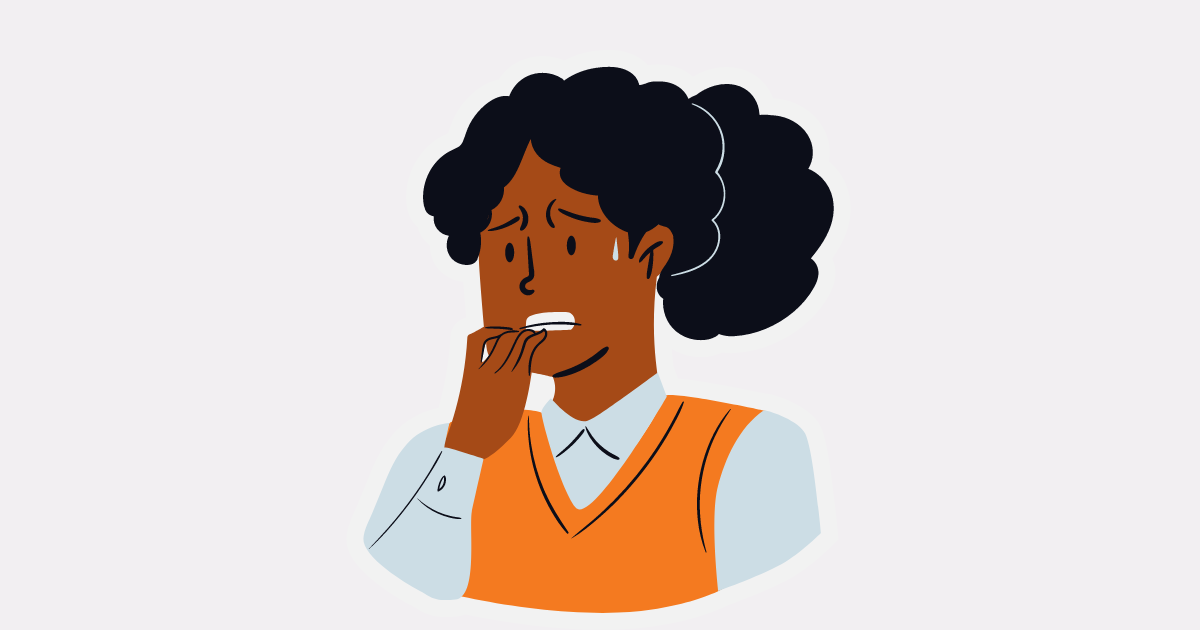Insomnia can significantly impact your quality of life, making it challenging to function during the day. If you’re struggling to get a good night’s sleep, you’re not alone. Thankfully, there are several natural strategies to help manage insomnia effectively. By incorporating these methods into your routine, you may find relief from sleepless nights and improve your overall well-being. In this post, we’ll explore five of the best natural ways to help with insomnia, offering practical tips to promote better sleep without relying on medication.
Table of Contents
What Is Insomnia
Insomnia is a common sleep disorder characterized by difficulty falling asleep, staying asleep, or waking up too early and not being able to go back to sleep. This can result in poor quality or insufficient sleep, leading to daytime fatigue, mood disturbances, and difficulties with concentration.
There are two main types of insomnia:
- Acute Insomnia: Short-term and often linked to stress, anxiety, or changes in routine. It usually resolves on its own or with short-term changes in lifestyle.
- Chronic Insomnia: Lasts for a month or longer and may be related to underlying health conditions, such as depression, anxiety disorders, or chronic pain. It can also be influenced by poor sleep habits or other factors.
Treatment for insomnia may include lifestyle changes, cognitive-behavioral therapy for insomnia (CBT-I), and, in some cases, medication. Improving sleep hygiene, such as maintaining a regular sleep schedule and creating a restful environment, can also help manage and reduce symptoms.
Symptoms Of Insomnia
Insomnia is a common sleep disorder characterized by difficulty falling asleep, staying asleep, or experiencing non-restorative sleep. Here are some symptoms:
- Difficulty Falling Asleep: Struggling to get to sleep even when you’re tired.
- Frequent Waking: Waking up multiple times during the night and having trouble going back to sleep.
- Early Waking: Waking up too early in the morning and not being able to fall back asleep.
- Non-Restorative Sleep: Feeling unrefreshed or tired upon waking, despite having slept for several hours.
- Daytime Fatigue: Feeling excessively sleepy or fatigued during the day.
- Irritability or Mood Changes: Experiencing irritability, mood swings, or increased stress due to lack of sleep.
- Difficulty Concentrating: Trouble focusing, memory problems, or decreased performance at work or school.
- Increased Errors or Accidents: Higher likelihood of making mistakes or having accidents due to impaired cognitive function.
If these symptoms persist for more than a few weeks, it might be helpful to consult a healthcare provider for further evaluation and treatment options.
Types Of Insomnia
Insomnia can be categorized into different types based on its duration, underlying causes, and specific characteristics. Here are some common types:
- Acute Insomnia: This is short-term insomnia that typically lasts for a few days or weeks. It is often triggered by stress, trauma, or a specific event, such as a job interview or the loss of a loved one. Acute insomnia is usually temporary and resolves once the triggering event is over.
- Chronic Insomnia: This type of insomnia persists for at least three nights per week over a period of three months or longer. It can be caused by ongoing stress, medical conditions, or psychiatric disorders. Chronic insomnia can significantly impact daily functioning and quality of life.
- Primary Insomnia: This form of insomnia is not associated with any other medical or psychiatric condition. It is often linked to stress, anxiety, or poor sleep habits. Individuals with primary insomnia struggle with sleep initiation, maintenance, or early awakening without an underlying health issue.
- Secondary Insomnia: Also known as comorbid insomnia, this type occurs due to an underlying health condition or medication. Conditions such as depression, anxiety, asthma, or chronic pain can contribute to secondary insomnia. Treating the underlying condition often helps alleviate insomnia.
- Onset Insomnia: This type involves difficulty falling asleep at the beginning of the night. Individuals with onset insomnia may lie awake for an extended period before falling asleep.
- Maintenance Insomnia: This type refers to difficulty staying asleep throughout the night. People with maintenance insomnia may wake up frequently during the night or wake up too early and have trouble going back to sleep.
- Early Morning Insomnia: Individuals with this type of insomnia wake up earlier than desired and are unable to return to sleep. This can lead to insufficient sleep and daytime fatigue.
Understanding the type of insomnia can help in determining the most effective treatment or management strategy. If you or someone you know is experiencing persistent sleep difficulties, consulting a healthcare professional is recommended.
Causes Of Insomnia
Insomnia, or difficulty falling or staying asleep, can stem from various causes. Here are some common ones:
1. Stress and Anxiety
High levels of stress and anxiety can keep your mind racing, making it hard to relax enough to fall asleep. Worries about work, relationships, or financial issues can lead to a restless night.
2. Poor Sleep Hygiene
Irregular sleep schedules, excessive screen time before bed, and an uncomfortable sleep environment can all contribute to insomnia. Creating a relaxing bedtime routine and a conducive sleep environment can help.
3. Medical Conditions
Certain health conditions, such as chronic pain, asthma, or diabetes, can interfere with sleep. Additionally, disorders like sleep apnea or restless leg syndrome can significantly impact your ability to get restful sleep.
4. Medications
Some medications, including those for high blood pressure, depression, or allergies, can have side effects that disrupt sleep patterns.
5. Lifestyle Factors
Caffeine, nicotine, and alcohol consumption can affect your ability to fall asleep or stay asleep. Additionally, irregular sleep patterns, such as shift work or frequent travel, can disrupt your circadian rhythm.
6. Mental Health Disorders
Conditions like depression, bipolar disorder, or PTSD can affect sleep. People with these conditions often experience insomnia as a symptom.
7. Hormonal Changes
Hormonal fluctuations, particularly in women during menopause or pregnancy, can lead to sleep disturbances. Hormones play a significant role in regulating sleep-wake cycles.
8. Eating Habits
Eating large meals or heavy, spicy foods close to bedtime can cause discomfort and indigestion, making it difficult to fall asleep.
9. Age
As people age, their sleep patterns often change. Older adults may experience lighter sleep and more frequent awakenings throughout the night.
Addressing the underlying cause of insomnia often involves a combination of lifestyle changes, medical treatment, and, in some cases, therapy. If insomnia persists, consulting a healthcare professional is advisable.
Negative Effects of Insomnia
Insomnia can have a range of negative effects on both physical and mental health. Here are some key areas impacted by insomnia:
- Cognitive Impairment: Chronic insomnia often leads to difficulties with concentration, memory, and decision-making. Lack of sleep impairs cognitive function, making it harder to focus and process information effectively.
- Emotional Instability: People with insomnia are more likely to experience mood swings, irritability, and increased stress. Sleep deprivation can exacerbate feelings of anxiety and depression, creating a cycle of emotional instability.
- Physical Health Issues: Insomnia is linked to a variety of physical health problems, including weakened immune function, increased risk of cardiovascular diseases, and obesity. Chronic sleep deprivation can disrupt metabolic processes and contribute to weight gain and other health issues.
- Decreased Productivity: Sleep deprivation affects work performance and daily functioning. Insomniacs may struggle with decreased productivity, higher error rates, and lower job satisfaction due to impaired cognitive and physical abilities.
- Increased Risk of Accidents: Lack of sleep impairs coordination and reaction times, raising the risk of accidents, especially while driving or operating machinery. This can lead to injuries and accidents that might otherwise be preventable.
- Weakened Immune System: Chronic insomnia can weaken the immune system, making individuals more susceptible to infections and illnesses. Proper sleep is essential for maintaining a healthy immune response.
Addressing insomnia through lifestyle changes, stress management, or professional help can mitigate these negative effects and improve overall well-being.
7 Best Natural Ways to Help with Insomnia
Struggling with insomnia can be incredibly frustrating, affecting your daily life and overall well-being. If you’re seeking natural solutions to help you sleep better, you’re in the right place. In this post, we’ll explore seven effective natural ways to address insomnia and improve your sleep quality. Whether you’re dealing with occasional sleepless nights or more persistent issues, these strategies can help you find relief.
1. Establish a Consistent Sleep Routine
Creating a regular sleep schedule is crucial for managing insomnia. Aim to go to bed and wake up at the same time every day, even on weekends. This consistency helps regulate your body’s internal clock, making it easier to fall asleep and wake up naturally. By reinforcing this routine, you train your body to recognize when it’s time to wind down, which can significantly improve your sleep quality.

2. Optimize Your Sleep Environment
Your bedroom environment plays a significant role in your sleep quality. Make sure your bedroom is cool, dark, and quiet. Invest in a comfortable mattress and pillows to support restful sleep. Consider using blackout curtains, earplugs, or a white noise machine to minimize disruptions. A serene and inviting sleep environment can help signal to your body that it’s time to relax and prepare for sleep.

3. Practice Relaxation Techniques
Incorporating relaxation techniques into your nightly routine can be highly effective for combatting insomnia. Techniques such as deep breathing, progressive muscle relaxation, or guided imagery can help calm your mind and prepare your body for sleep. Try setting aside 15-30 minutes before bed for these practices. By reducing stress and anxiety, you create a more conducive environment for restful sleep.

4. Limit Caffeine and Alcohol Intake
Caffeine and alcohol can significantly impact your ability to fall and stay asleep. Try to avoid consuming caffeine-containing products, such as coffee, tea, or energy drinks, in the afternoon and evening. Similarly, while alcohol may initially make you feel drowsy, it can disrupt your sleep later in the night. Being mindful of your intake of these substances can improve your overall sleep quality.

5. Incorporate Physical Activity
Regular physical activity has been shown to improve sleep quality and help manage insomnia. Aim for at least 30 minutes of moderate exercise most days of the week. Activities such as walking, jogging, or yoga can promote better sleep. However, try to avoid vigorous exercise close to bedtime, as it may have the opposite effect and make it harder to fall asleep.

6. Create a Bedtime Ritual
Developing a calming bedtime ritual can signal to your body that it’s time to wind down. Activities such as reading a book, taking a warm bath, or practicing gentle stretching can help prepare your mind and body for sleep. Avoid stimulating activities, like using electronic devices or engaging in intense discussions, as these can interfere with your ability to fall asleep.

7. Maintain a Balanced Diet
Your diet can impact your sleep patterns. Consuming a balanced diet that includes sleep-promoting nutrients, such as magnesium, calcium, and tryptophan, can support better sleep. Foods like almonds, bananas, and turkey are rich in these nutrients. Additionally, avoid heavy or spicy meals close to bedtime, as they can cause discomfort and disrupt your sleep.

Conclusion
Insomnia can be a challenging issue, but incorporating these natural strategies into your routine can help you find relief and improve your sleep quality. By establishing a consistent sleep schedule, optimizing your sleep environment, and practicing relaxation techniques, you can create a more conducive environment for restful sleep. Remember to be patient and give these methods time to work. With persistence and a mindful approach, you can overcome insomnia and enjoy a more restful night’s sleep.
FAQ
1. What is insomnia?
Insomnia is a sleep disorder characterized by difficulty falling asleep, staying asleep, or waking up too early and not being able to go back to sleep. This condition can lead to daytime fatigue, mood disturbances, and difficulty concentrating.
2. What are the common causes of insomnia?
Common causes include stress, anxiety, depression, poor sleep habits, excessive caffeine or alcohol consumption, medical conditions, medications, and changes in your sleep environment or schedule.
3. How can I tell if I have insomnia?
If you experience difficulty falling asleep or staying asleep at least three times a week for three months or longer, and it affects your daily functioning, you may have insomnia. Keeping a sleep diary can help track your sleep patterns and symptoms.
4. What are some effective treatments for insomnia?
Effective treatments include lifestyle changes such as improving sleep hygiene, cognitive-behavioral therapy for insomnia (CBT-I), and, in some cases, medication. Addressing underlying issues like stress or medical conditions can also help.
5. How can I improve my sleep hygiene?
Improving sleep hygiene involves creating a consistent sleep schedule, maintaining a comfortable sleep environment, avoiding stimulants like caffeine and electronics before bed, and engaging in relaxing activities before bedtime.
6. When should I see a doctor about my insomnia?
Consult a doctor if insomnia persists despite trying self-help strategies, if it significantly impacts your daily life, or if it is accompanied by other symptoms like severe anxiety, depression, or medical issues.
7. Are there any natural remedies for insomnia?
Natural remedies include herbal supplements like valerian root or chamomile, practicing relaxation techniques such as meditation or deep breathing, and making lifestyle changes to improve sleep habits.
8. Can insomnia be a sign of a more serious condition?
Yes, chronic insomnia can be a symptom of underlying health issues such as anxiety, depression, or chronic pain. It’s important to address these conditions with a healthcare provider if they are contributing to sleep problems.
9. How long does it typically take to treat insomnia?
The duration of treatment can vary depending on the cause and severity of insomnia. With proper treatment and lifestyle adjustments, many people see improvement within a few weeks to a few months.
10. Can insomnia affect my overall health?
Yes, chronic insomnia can impact your overall health by increasing the risk of conditions like heart disease, high blood pressure, diabetes, and weakened immune function. It can also affect mental health, leading to increased stress and mood disorders.
Discover more from Positive Treasure
Subscribe to get the latest posts sent to your email.
